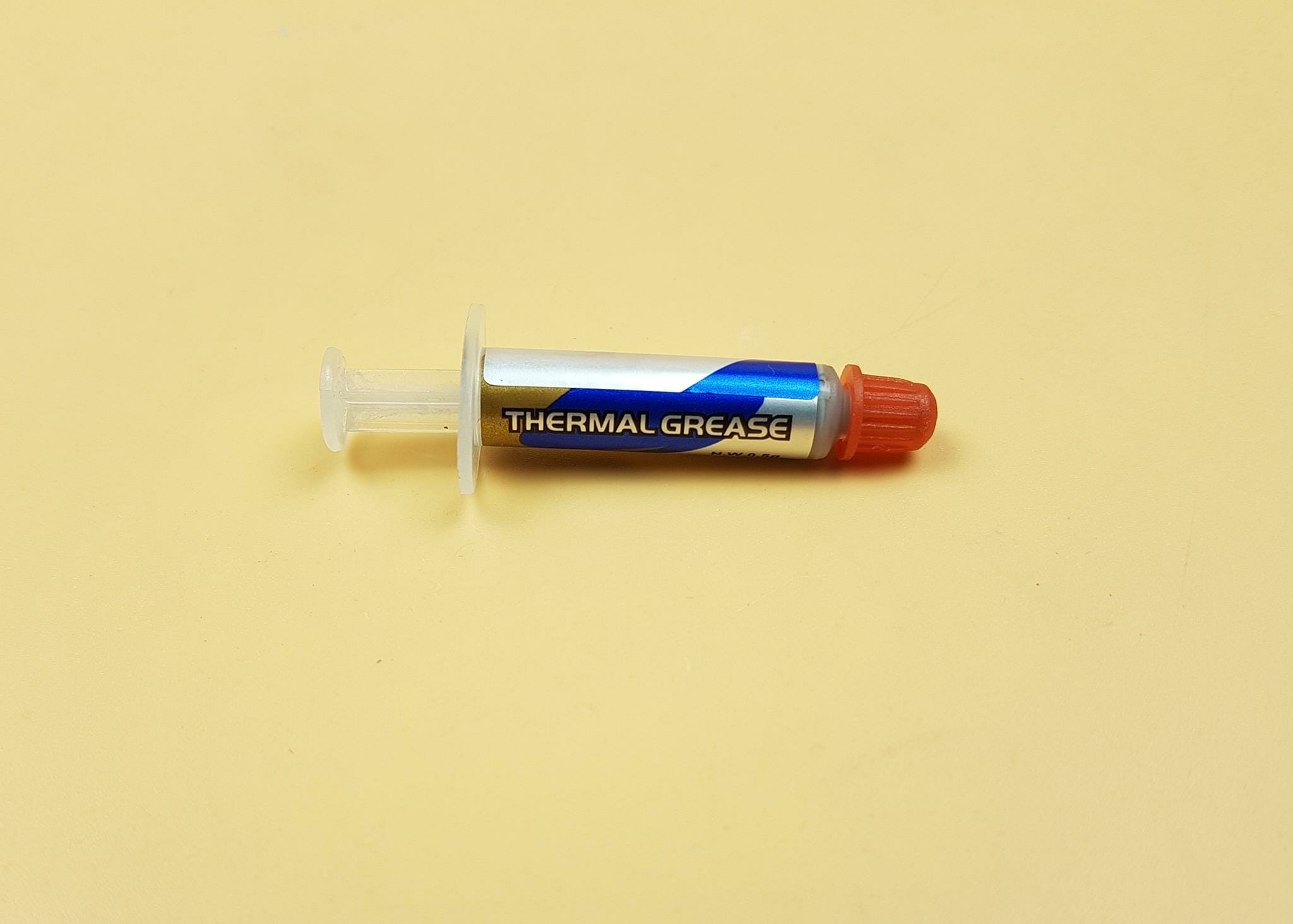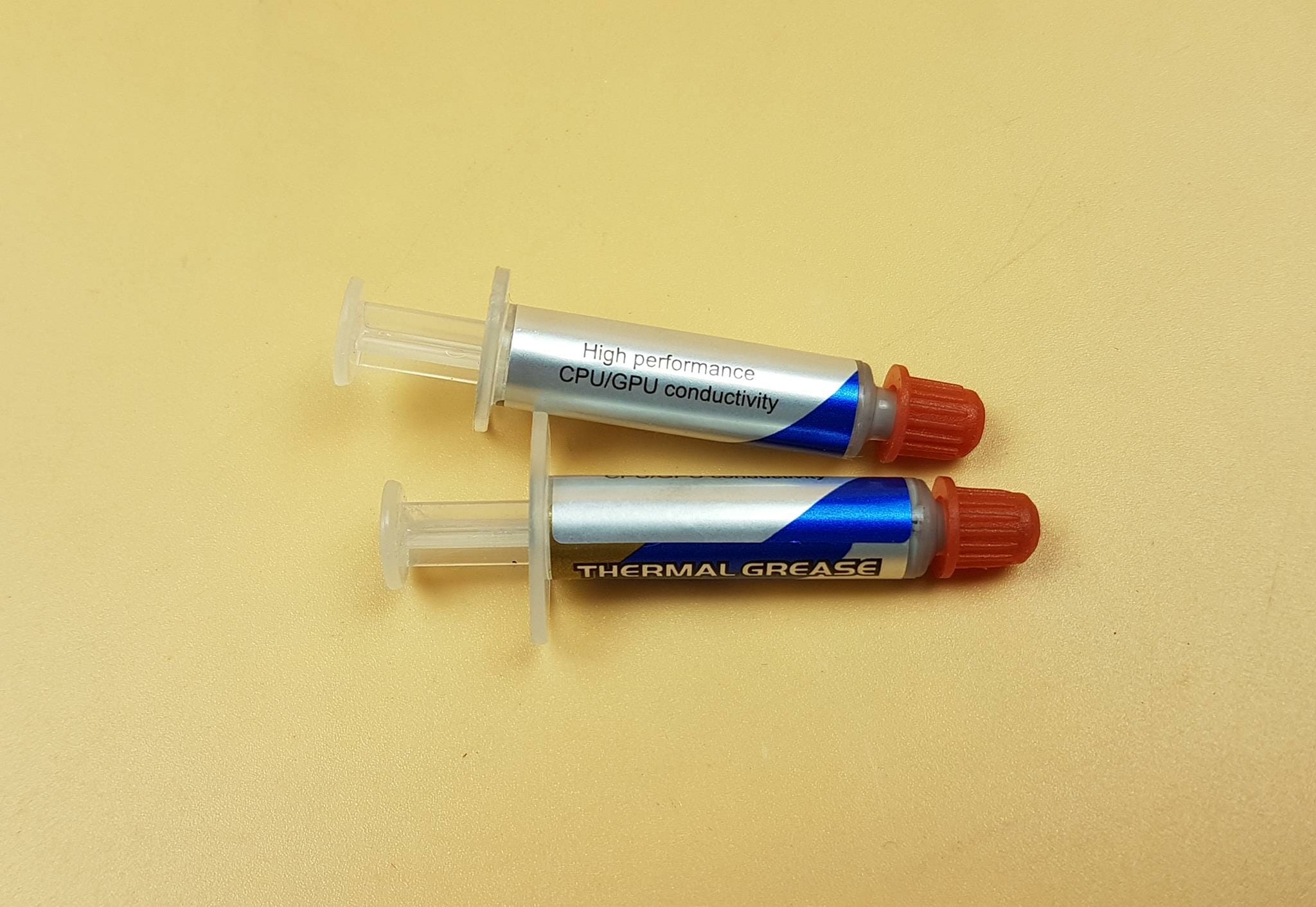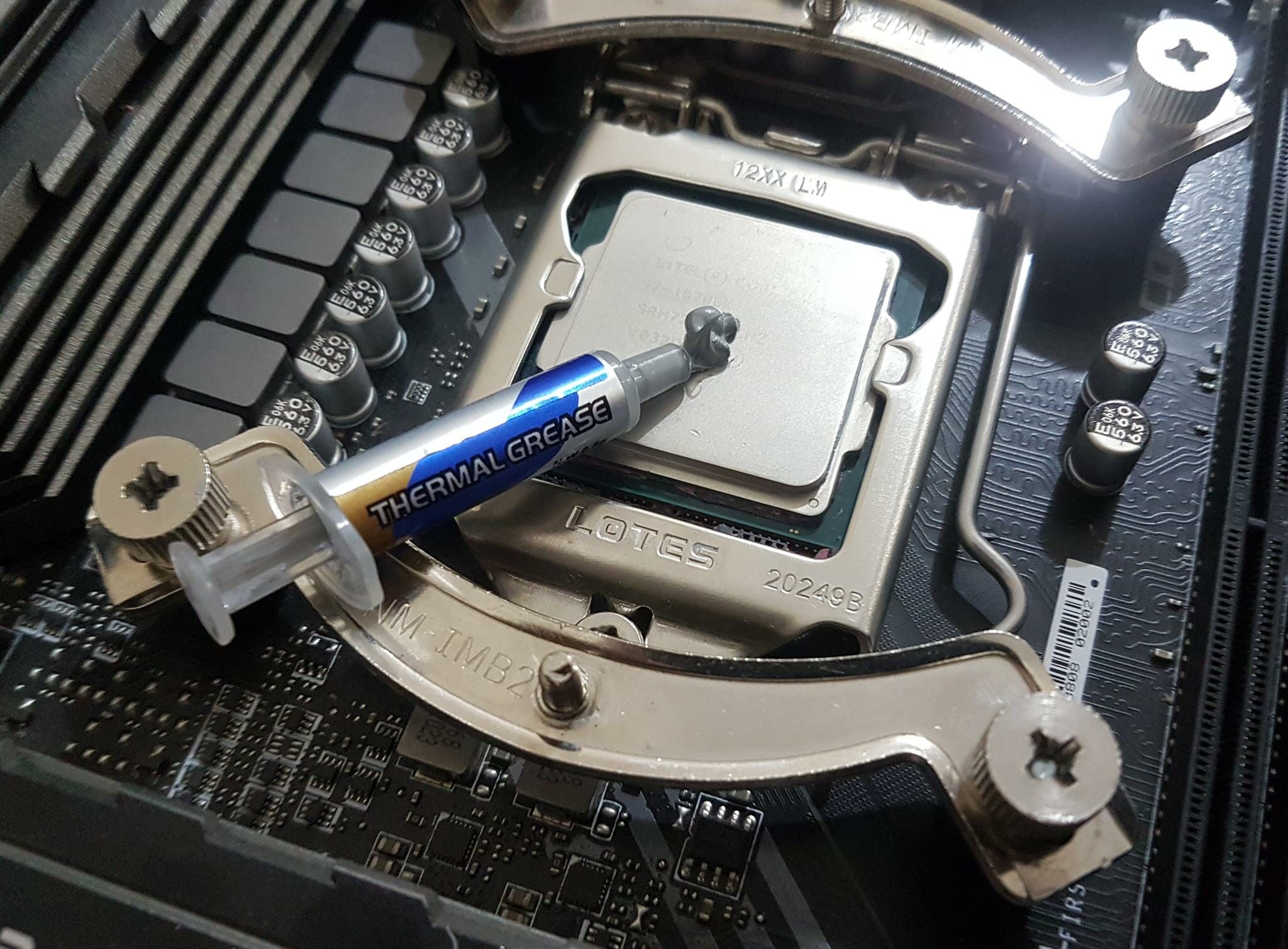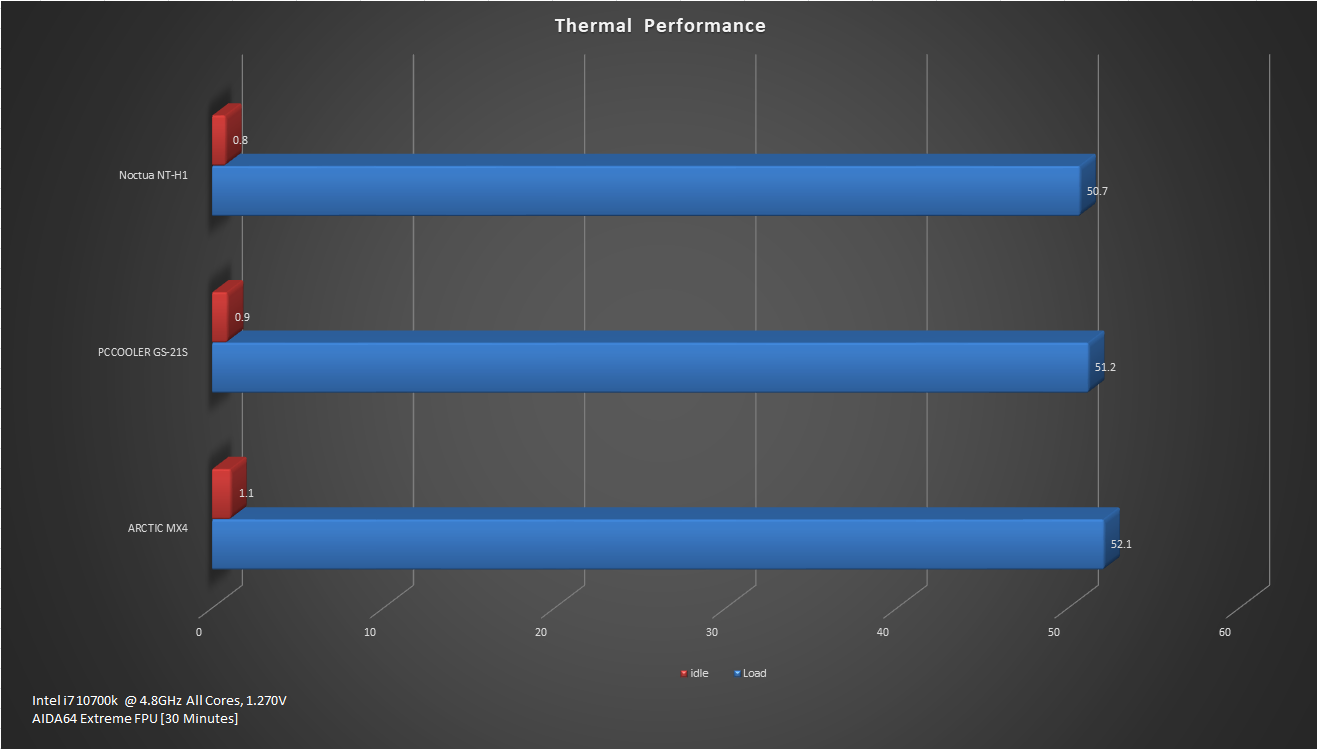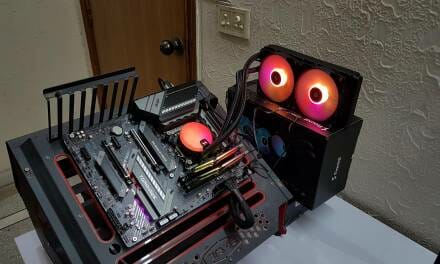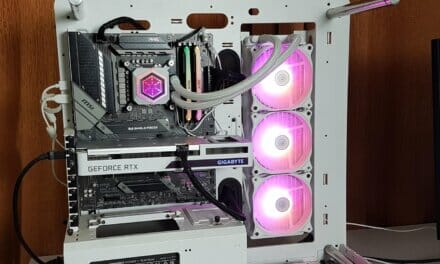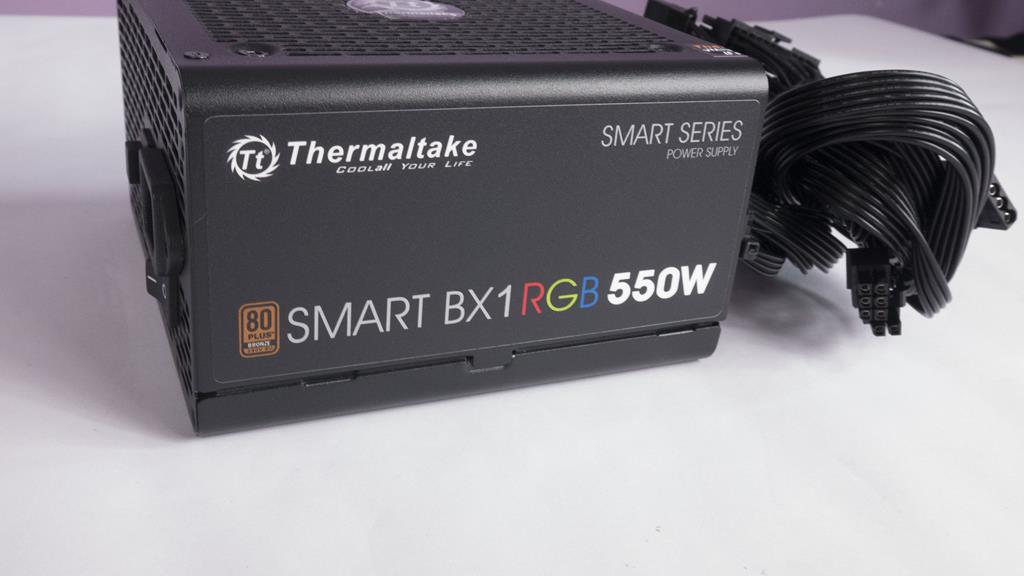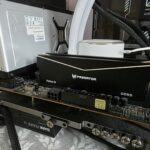
GS-21S Thermal Paste Review
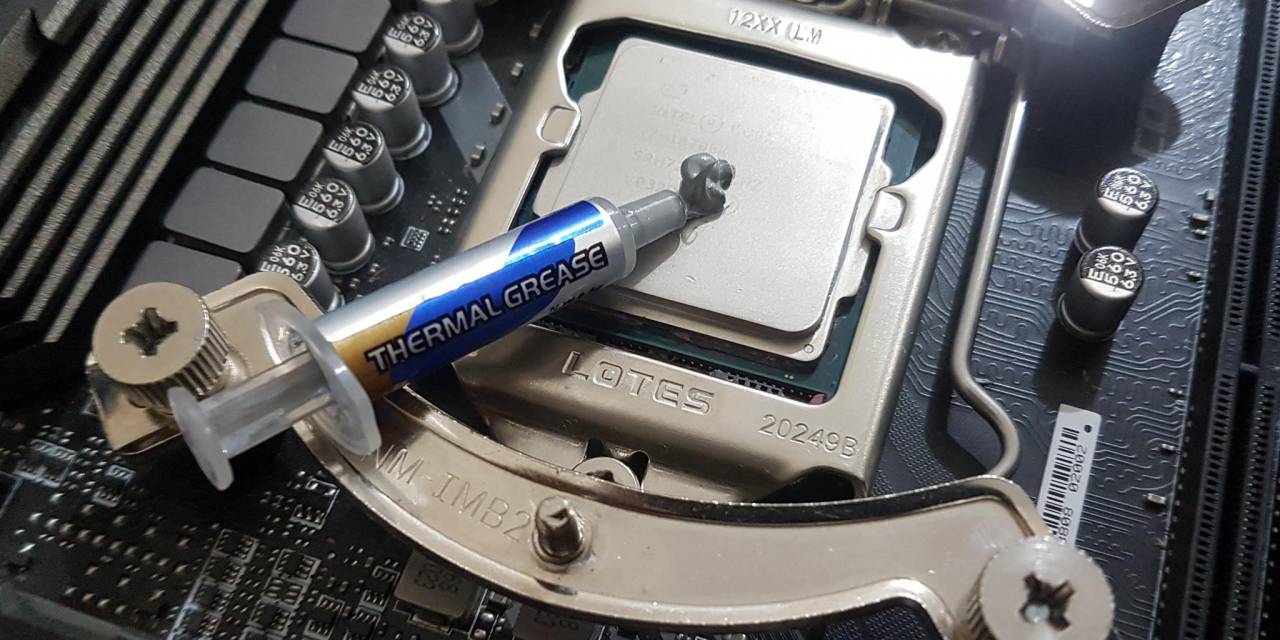
Introduction
PCCOOLER is a relatively new brand focused on PC Coolers, Case Fans, PSU, and PC Chassis manufacturing. PCCOOLER is a brand of Shenzhen Fluence Technology PLC, which was founded in 2005. PCCOOLER is a leading brand in China domestic market and now their products are available in other countries including America, Brazil, Chile, Russia, Uzbekistan, Kazakhstan, Indonesia, Malaysia, Korea, Germany, Japan, and so on.
PCCOOLER has sent us their GS-21S thermal paste with a request to test this TIM. In this content, we will be testing and sharing the results of this thermal paste from GS-21S.
Item: GS-21S
Manufacturer: PCCOOLER*
Pricing: Not Provided
*The OEM of this thermal paste seems to be another manufacturer as we have seen same thermal paste in ALSEYE coolers.
Closer Look
Since they sent us a few tubes of GS-21S without any packaging hence there is no packaging and unboxing detail.
The GS-21S is supplied in a plastic tube with a red color cap on the tube. Please note that there is no PCCOOLER branding anywhere on the tube.
High-Performance CPU/GPU Conductivity is printed on the cover. The provided quantity of the thermal paste in a single tube is 0.3g which may be suited for two applications on Intel LGA115x/1200.
| Name | GS-21S |
| Color | Gray |
| Thermal Conductivity | 4 W/m-K |
| Thermal Impedance (℃*cm2/w),60Psi | 0.07 |
| Volume Resistivity (Ω) | 1.8×1012 |
| Viscosity 22℃(mPa.s) | 5,600,000 |
| Specific Gravity(g/cm3) | 2.6 |
| Oil Separation (%) 200℃@96hrs | <0.01 |
| Evaporation loss (%) 120℃@96hrs | 0.18 |
| Storage Temperature | 15-25°C |
| Storage life (25℃) | 720 days |
The GS-21S has a gray color paste and it is a bit less thick than Noctua NT-H1.
Testing
The following test bench is used for thermal performance testing: –
- MSI MAG Z490 TOMAHAWK Motherboard
- Intel i7 10700k
- Noctua NH-D15
- GSkill AEGIS 16GB @ 2800MHz
- Nvidia GeForce GTX 1080 FE
- Addlink S70 256GB NVMe SSD
- bequiet! Straight Power 11 850W Platinum PSU
- Open-air Test bench
AIDA64 Extreme is used to stress test the CPU cooler using FPU.
Following testing methodology is used for the thermal paste testing:
- Intel i7 10700k was set to run 4.8GHz on all cores using 1.27V VCore (manual). We had wanted to test the chip at 5.0GHz but the high ambient temperature did not warrant that testing.
- The chip was drawing power of nearly 156W so we still have enough thermal heat output to deal with.
- A graphics card with a much higher heat load or the HEDT/EPYC CPUs with large surface areas are a better candidates for thermal paste testing.
- A blob method is used with a pea-size drop in the center of IHS.
- A test run of 30 minutes was done using AIDA64 Extreme on stock settings.
- PC was powered off for a minimum of 30 minutes after the stress test run. This would allow completion of the thermal cycle with hot and cold runs giving the thermal paste some time to reach its near-optimal condition.
- The system was idle for 10 minutes before taking the Idle temperature values.
- A stress run of 30 minutes was made using AIDA64 Extreme (FPU). Temperature values on all cores are taken at the end of the result.
- Ideally, we would have wanted to do 3 tests as a minimum for a single thermal paste and showing the average of these three runs but due to my poor health condition, one test result is shown.
- Test results were dropped if the mounting pressure was found not enough as indicated by the spread of the thermal paste. And the test was repeated so as to have validated results.
- The fans on the NH-D15 were set to run at their full speed for which the settings were made in UEFI/BIOS.
- The values on the graphs are calculated by taking the average of all cores temperature values and deducting ambient temperature from the average value to yield delta temperature values.
Please note that not every run of the stress test may yield the same result. This could well be due to many factors like mounting pressure, thermal paste application, varying ambient temperature. Not to mention the silicon differences even among the same category of the chips. Hence, it is pertinent to mention the testing methodology along with the specifics.
Let’s take a look at the results.
The GS-21S has performed quite good as indicated by the results.
Conclusion
The PCCOOLER GS-21S is a thermal paste provided with their coolers. The paste is supplied in 0.3g per tube packing. It seems to be available only with their coolers as we could not find any dedicated webpage on their website. However, PCCOOLER has provided the specifications of the thermal paste as mentioned in the content. The thermal conductivity rating of this thermal paste is 4.0 W/m-K which is fine as the majority of the thermal pastes coming with up to 5 W/m-K rating. Only the high-performance thermal pastes would have near 13~14 W/m-K ratings. The GS-21S has performed very well in our testing. It is easy to apply as well. Unfortunately, we could not any pricing information hence relative performance evaluation is not possible. Still, based on the actual performance of this thermal paste, it comes recommended.
















